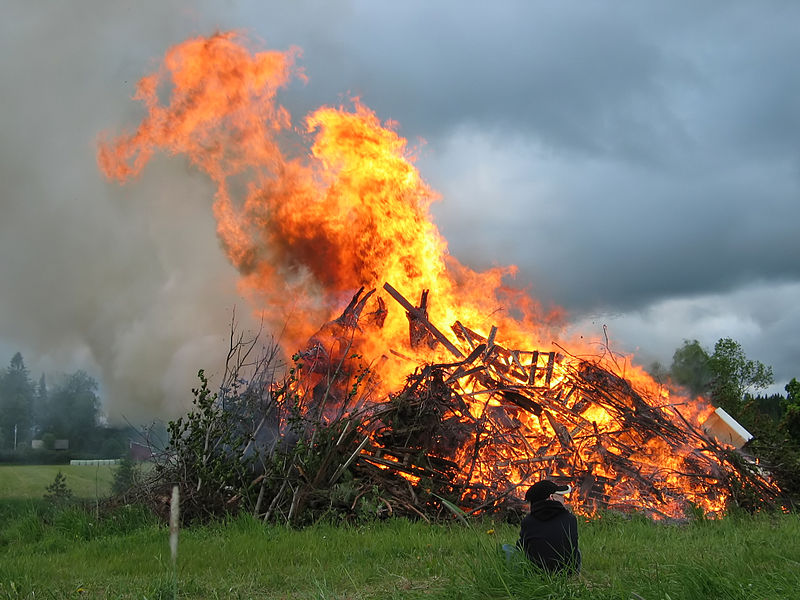The summer solstice, more commonly known as Midsummer, marked the longest day of the year and the zenith of magical power often called “white magic.” Magic worked on Midsummer was most often concerned with life and fertility. Jumping through the Midsummer bonfire was a way to attract fertility, good luck, and prosperity to both the jumper and the surrounding fields. The bonfires of Midsummer are traditionally kindled from the friction of two sacred woods, fir and oak. Nine different types of herbs are thrown upon the Midsummer fire: mistletoe, vervain, St. John’s Wort, heartsease, lavender, and a choice of four others chosen from herbs typical of this season such as yarrow. Folks would feast, dance and jump the fire for luck and fertility. The herds were driven through the embers in days long ago to purge disease and illness from them. When the fires had burned down, folks would carry ashes back to their homes to sprinkle on fields, the four corners, and lay embers on the hearth. The ashes bring powers of protection, health and luck.
Water is the other important aspect of Midsummer. In times past folks swam in waters that flowed towards the rising sun as it climbed in Midsummer morning sky. Bathing in springs and rivers on Midsummer brings healing, cleansing and protection. The dew of Midsummer is said to bestow health to whomever drinks of it. Especially powerful is fetching running water of Midsummer morn and mixing it with ashes from the bonfire, sprinkling it around the house, yard and on oneself bestows protection and luck. Iceland combined the beliefs about bathing and dew into one practice: Icelandic folklore says that if you bathe naked in the morning dew on the morning of June 24, you will keep aging at bay for longer.) Midsummer Eve, the night before the solstice, is the evening of herbs. The herbs and flowers gathered this night are considered exceptionally potent. St John’s Wort, burdock, thorn, and nettle , should be harvested on Midsummer Eve and hung on doors or windows and placed around the home for protection. Royal Fern seeds which are gathered at midsummer are said to make the possessor invisible. They who find Royal Fern blossoms on Midsummer’s eve become wise, lucky, and wealthy. Women wear braided circlets of clover and flowers, while men wear chaplets of oak leaves and flowers around their heads. In times past, livestock were also decorated with garlands made of flowers, foliage, and oak leaves.


Pingback: Beading of John The Baptist | Stephen Morris, author